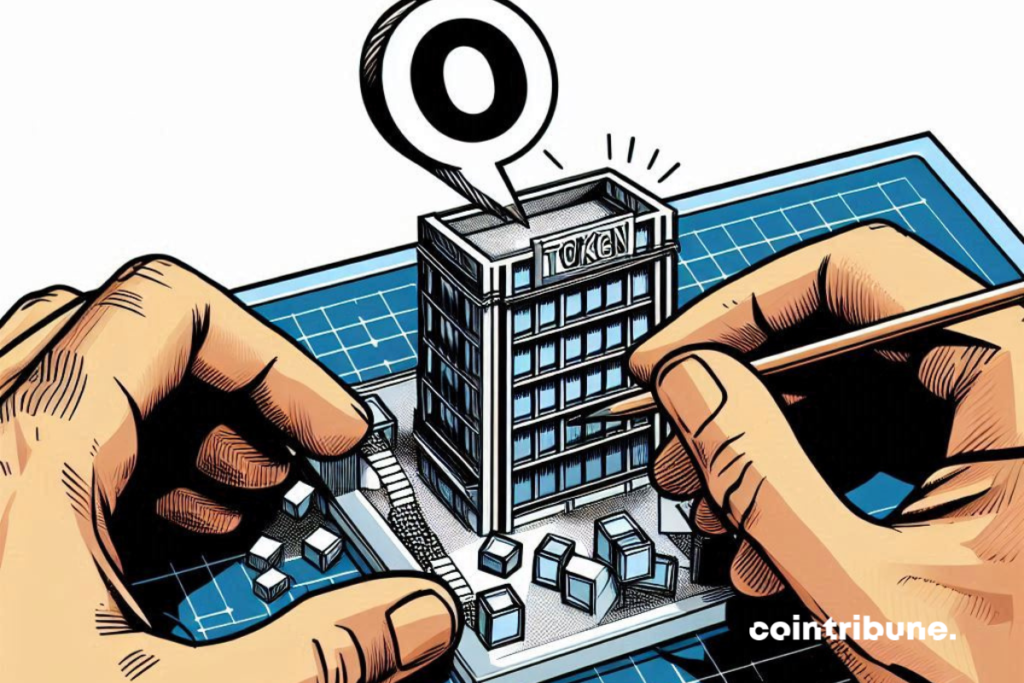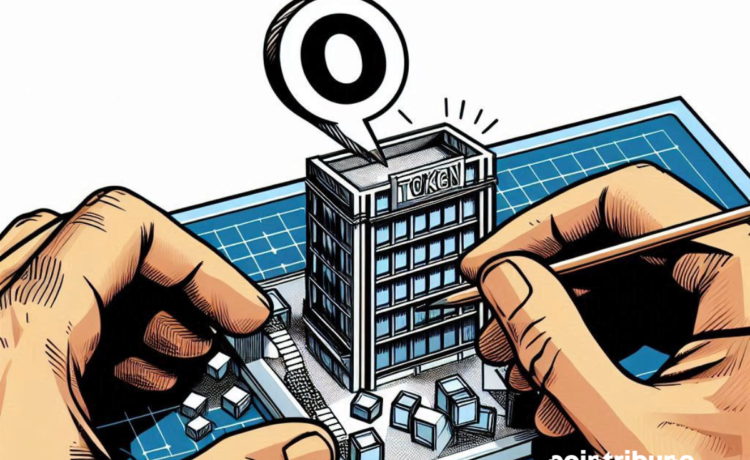8h16 ▪
3
min of reading ▪ by
Decentralized finance (DeFi) continues to disrupt traditional economic sectors. With asset tokenization, it is set to revolutionize commercial real estate. Kunal Bhasin, from KPMG, predicts a profound transformation thanks to this technology. Institutional investors could soon acquire shares of prestigious buildings via blockchain, making this market more accessible and transparent.

DeFi and real estate asset tokenization
Decentralized finance (DeFi) today stands out as a major catalyst in the commercial real estate sector.
According to Kunal Bhasin from KPMG, asset tokenization would allow institutional investors to acquire shares in iconic buildings, such as the Eaton Center in Toronto.
This technology breaks down access barriers, historically reserved for large real estate funds and pension fund managers. DeFi makes ownership more democratic and offers new investment opportunities.
However, institutional players prefer to operate in a regulated environment, where knowledge of stakeholders is crucial.
Slow but promising adoption
Although real estate asset tokenization is taking its time to establish itself, concrete examples are beginning to emerge.
In April, Bitfinex Securities facilitated a fundraising for a Hampton by Hilton hotel at El Salvador International Airport. Despite limited success to date, this initiative demonstrates the potential of tokenization.
Other use cases, such as tokenized Treasury bonds, are also attracting attention. The success of the BlackRock USD Institutional Digital Liquidity Fund (BUDIL), which has amassed $462.7 million since March, underscores the growing interest in these new forms of investment.
Moreover, as Hakim Korso Tlemsani, founder and CEO of Globees, points out:
Real-world assets (RWA) offer unparalleled growth potential, thanks to blockchain which streamlines transactions with unmatched transparency and security. At Globees, we tokenize vacation rentals to reduce intermediaries and costs, putting hosts and travelers back at the heart of the process.
Hakim Korso
Reputation challenges and future prospects for decentralized finance
Despite the obvious advantages of DeFi, financial institutions remain cautious due to the “reputation risk” associated with this sector still marked by frauds.
Nevertheless, significant progress has been made. KPMG, for example, uses the Chainalysis infrastructure to identify illicit activities. Implementing such measures reassures banks and other asset managers.
Kunal Bhasin points out that soon, not being involved in crypto assets like bitcoin (BTC) could pose a career risk. Therefore, the rise of DeFi could well become a strategic imperative to remain competitive.
As decentralized finance continues to transform real estate, one question remains: which sector will benefit from tokenization next?
“`
Maximize your Cointribune experience with our ‘Read to Earn’ program! Earn points for each article you read and gain access to exclusive rewards. Sign up now and start accruing benefits.
Click here to join ‘Read to Earn’ and turn your passion for crypto into rewards!
La révolution blockchain et crypto est en marche ! Et le jour où les impacts se feront ressentir sur l’économie la plus vulnérable de ce Monde, contre toute espérance, je dirai que j’y étais pour quelque chose
DISCLAIMER
The views, thoughts, and opinions expressed in this article belong solely to the author, and should not be taken as investment advice. Do your own research before taking any investment decisions.















